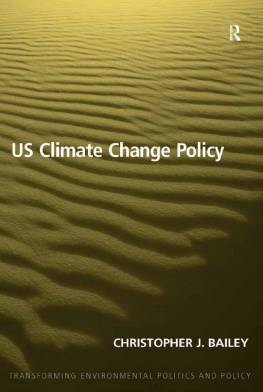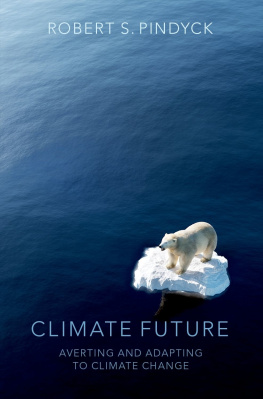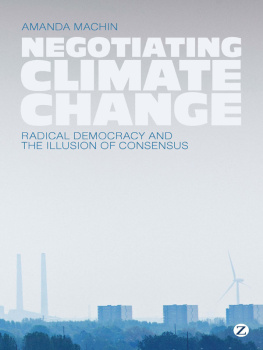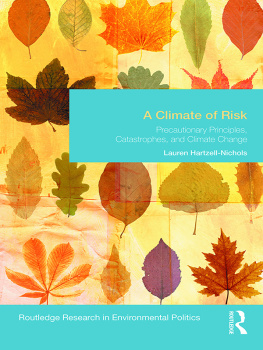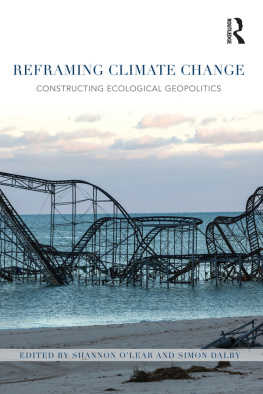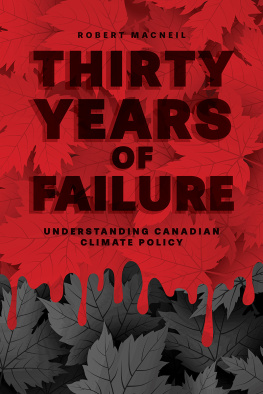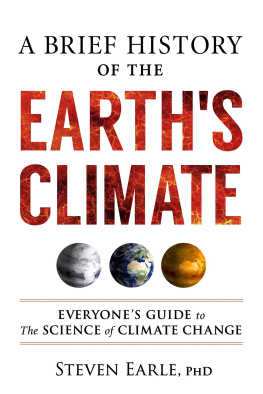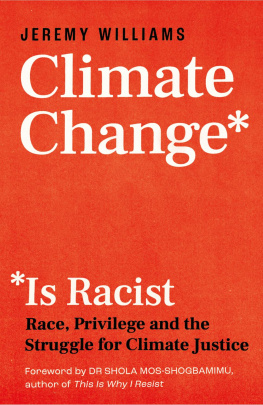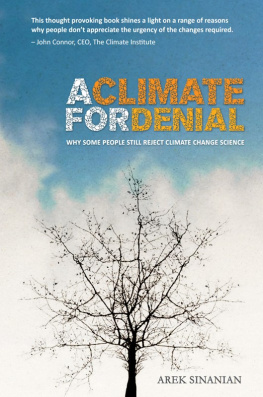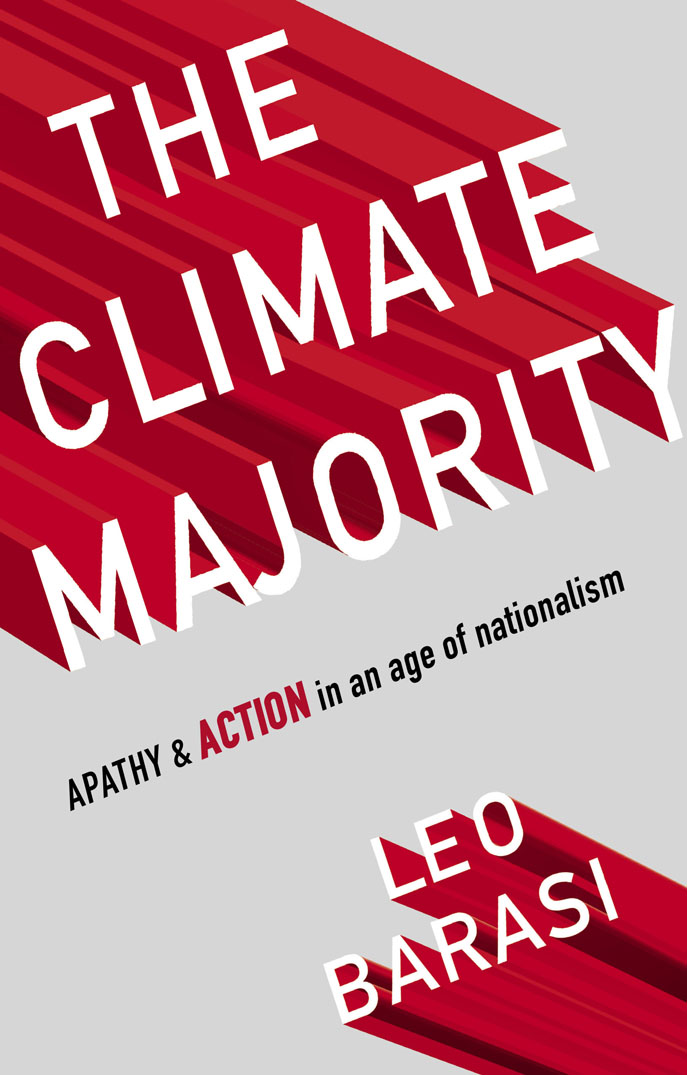
About the author
Leo Barasi is a climate and energy policy analyst and an expert in public opinion and campaigns. He has conducted polling and focus groups for political parties, governments and companies across the world. As a campaign consultant he has worked in sectors as diverse as the environment, wealth and health inequality, international development, drug addiction and access to the arts. He lives in London, UK.
Acknowledgements
Many people have made The Climate Majority possible. It is built on the research of social scientists and climate scientists I cannot thank them individually but the book would not exist without their work.
Im grateful to a number of people who gave their time to discuss ideas and answer my questions. They include: Dena Barasi, Alice Bell, Ann Clark, Jamie Clarke, Tom Crompton, Ruth Davis, Simon Evans, Laura Forrest Smith, Una Galani, Leo Hickman, Chris Hope, Neil Hughes, Ed King, Mark Lynas, Laura Mackinnon, Ben Ormerod, Keiran Pedley, Andrew Pendleton, Roz Pidcock, Stephan Price, Joeri Rogelj, Chris Rose, Kerry Saretsky, Guy Shrubsole, George Smith, Fran Stephenson, Sophie Yeo and the people who helped me understand their opinions on climate change.
I would particularly like to thank a few people who went to an unreasonable amount of trouble to help develop and challenge my ideas: Fred Barasi, Stephen Barasi, Patrick Griffiths, Daniel Harris, Christian Hunt, Rob Vance, Robin Webster and Deborah Wilson. Any errors or omissions that remain are my own.
I would also like to thank the team at New Internationalist for helping to shape the book and for taking it out into the world.
And, above all, thank you to my wife, Susie. Without her patience, support and advice I would never have written the book.

The Climate Majority: Apathy and action in an age of nationalism
First published in 2017 by
New Internationalist Publications Ltd
The Old Music Hall
106-108 Cowley Road
Oxford OX4 1JE, UK
newint.org
Leo Barasi/New Internationalist
The rights of Leo Barasi to be identified as the author of this work has been asserted in accordance with the Copyright, Designs and Patents Act 1998.
All rights reserved. No part of this book may be reproduced, stored in a retrieval system or transmitted, in any form or by any means, electronic, electrostatic, magnetic tape, mechanical, photocopying, recording or otherwise, without prior permission in writing of the Publisher.
Editor: Jo Lateu
Design: Andrew Kokotka
who hold environmental accreditation ISO 14001.

British Library Cataloguing-in-Publication Data
A catalogue record for this book is available from the British Library.
Library of Congress Cataloging-in-Publication Data
A catalog record for this book is available from the Library of Congress.
(ISBN ebook 978-1-78026-408-0)
Contents
Few people think climate change is a hoax. Instead of feeding a fringe conspiracy theory, we should focus on the people who can be persuaded to support the measures that will be needed to prevent disastrous global warming.
Around half of the population accept that climate change is happening yet are apathetic about it. Unlike climate deniers, these swing voters could be persuaded that the issue requires urgent action but at the moment it is not obvious to them why it matters.
Despite the 2015 Paris Agreement, the world is heading towards dangerous warming. Many countries are now cutting their greenhouse-gas emissions. But these measures wont be enough and some measures that will be needed to avoid disaster would be opposed by most people.
Even rich countries risk disaster from climate change. If the world radically cuts emissions, rich countries will face more extreme weather but would be able to cope. If it only meets its current emissions pledges, those extremes will be more destructive. And, if it fails to cut emissions, no country will escape catastrophe.
Climate change is rarely mentioned in everyday life. Even when it is talked about, apathy is usually not challenged, as most people are inclined to dismiss threats that appear complex, distant and slow-moving. But this link between psychology and climate apathy is not inevitable.
Apathy is worsened by the way climate change is often discussed by people worried about the problem. Descriptions of climate change often focus on distant places and animals and use apparently unthreatening small numbers to describe average global-temperature change and annual sea-level rise.
Climate change is widely seen as an interest of leftwing environmentalists, and some campaigners do little to resist this label. But many people who are apathetic about climate change dont identify with the Left and so assume that the threat is exaggerated for political reasons.
People who are apathetic about climate change will only begin to pay attention to the problem if they see what extreme warming would mean for the people and places they care most about. They also need to see that it is not too late to avoid disaster.
Discussions about climate change should give more prominence to people who are not seen as leftwing, and should encourage high-profile debates about possible solutions. This is essential if more people from the Center and Right are to be persuaded to take the problem seriously.
To overcome apathy we also need to show that cutting emissions will bring benefits beyond avoiding dangerous climate change. Leaders need to prove that the burden is distributed fairly and that dealing with the problem is not just self-interest but a moral imperative.
Table of Contents
Guide
T he world has begun to admit it has a temperature problem. Where once the relentless heating of the planet was mentioned only in scientists charts and protesters chants, it is now in the mainstream. Newspapers report it on their front pages, businesses plan for a hotter future and world leaders pledge to cut their countries emissions. When a politician denies the reality of the threat, the global response is now bafflement and ridicule.
But admitting a problem is not the same as dealing with it. Although the world has grown comfortable with talking about climate change, it almost never confronts what it will need to do to cut emissions. Preventing extreme climate change is one of the hardest tasks humans have ever faced. It wont be difficult for just an unfortunate few. Disastrous warming is close to inevitable unless many people, particularly those in rich countries, are prepared to accept sacrifices. Yet, inescapable though this may be, it could barely be further from the minds of the people whose lives would need to change. The world is in the jaws of a trap and has almost no idea how hard it will be to escape.
It is not easy to see when something is missing, but occasionally someone reveals the space where a conversation should be. This happened in 2016 when the Twitter account of an agricultural arm of Bayer, a German company, posted a link to an article that said going vegetarian can cut your food carbon footprint in half. Bayers social-media manager presumably thought the post would show the company to be taking part in a difficult debate about the future of food. But the accounts followers didnt see it that way. The tweet was met with outrage from farmers, appalled that their supplier appeared to be encouraging the public to eat less meat.


